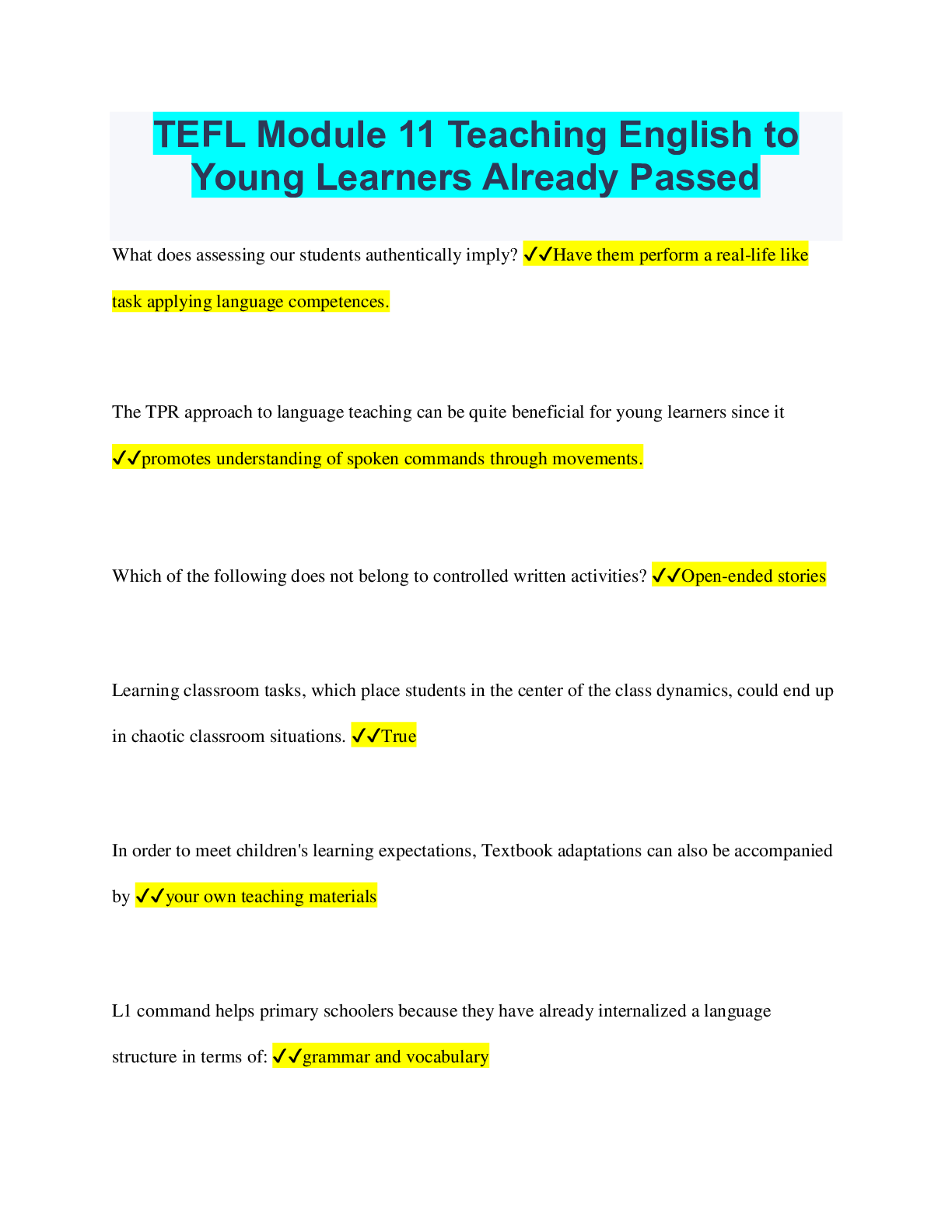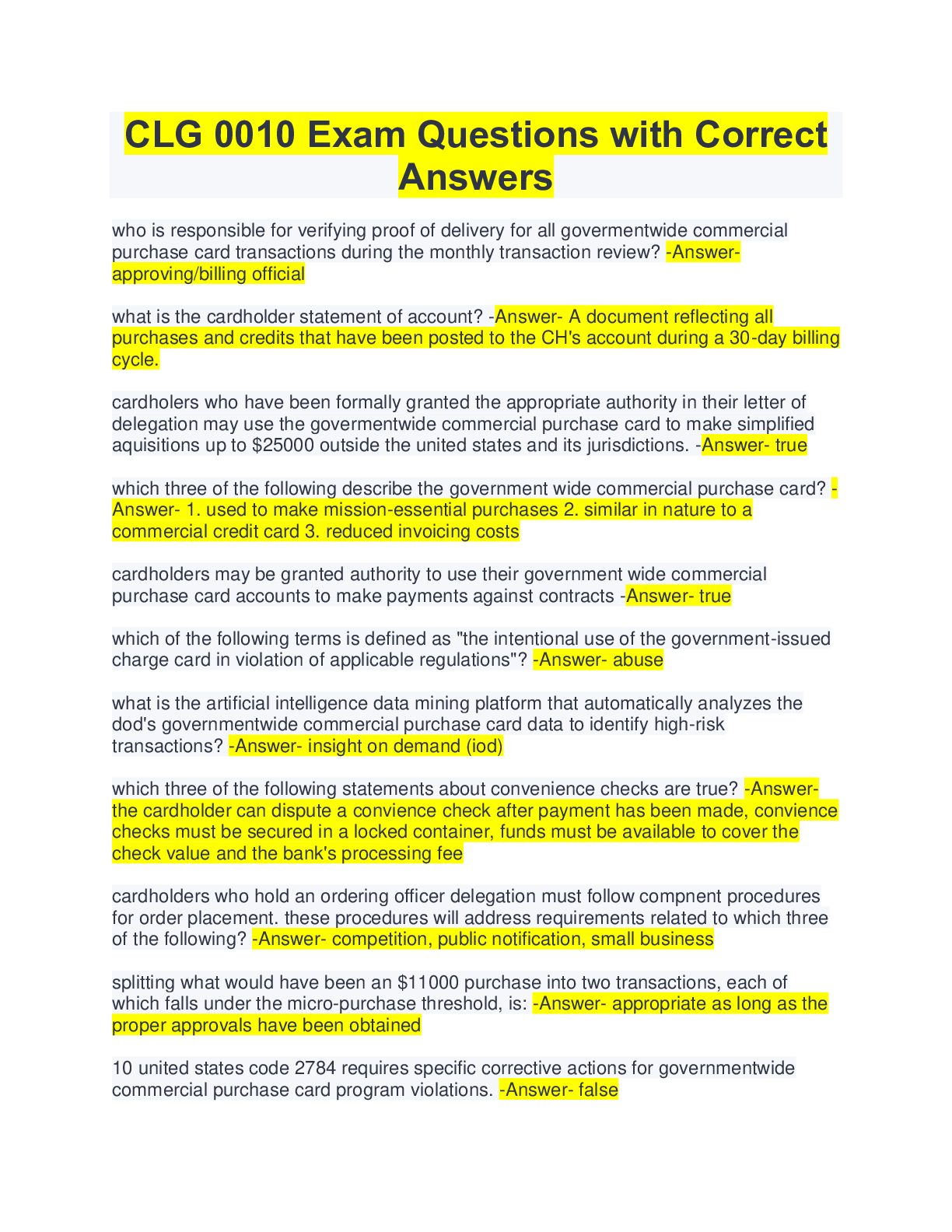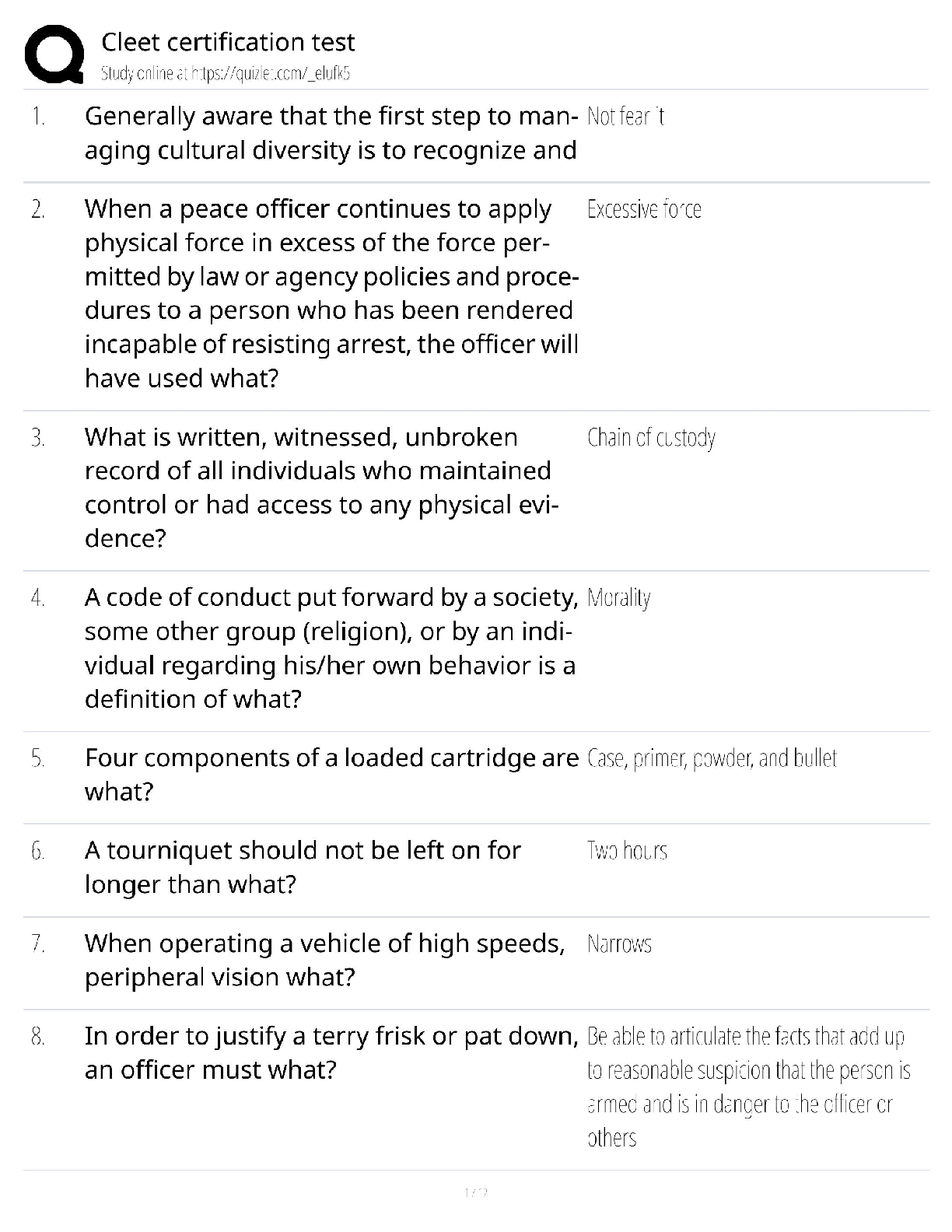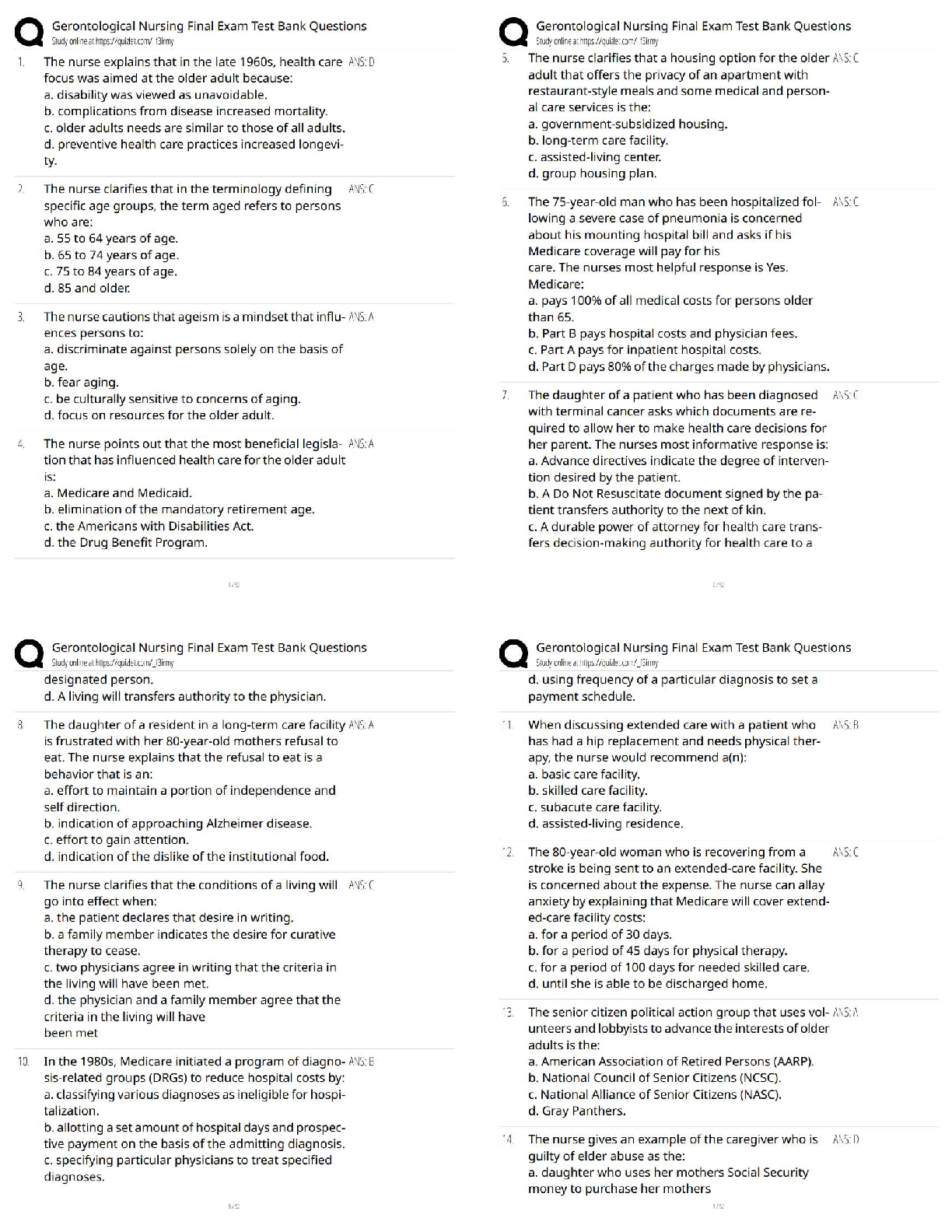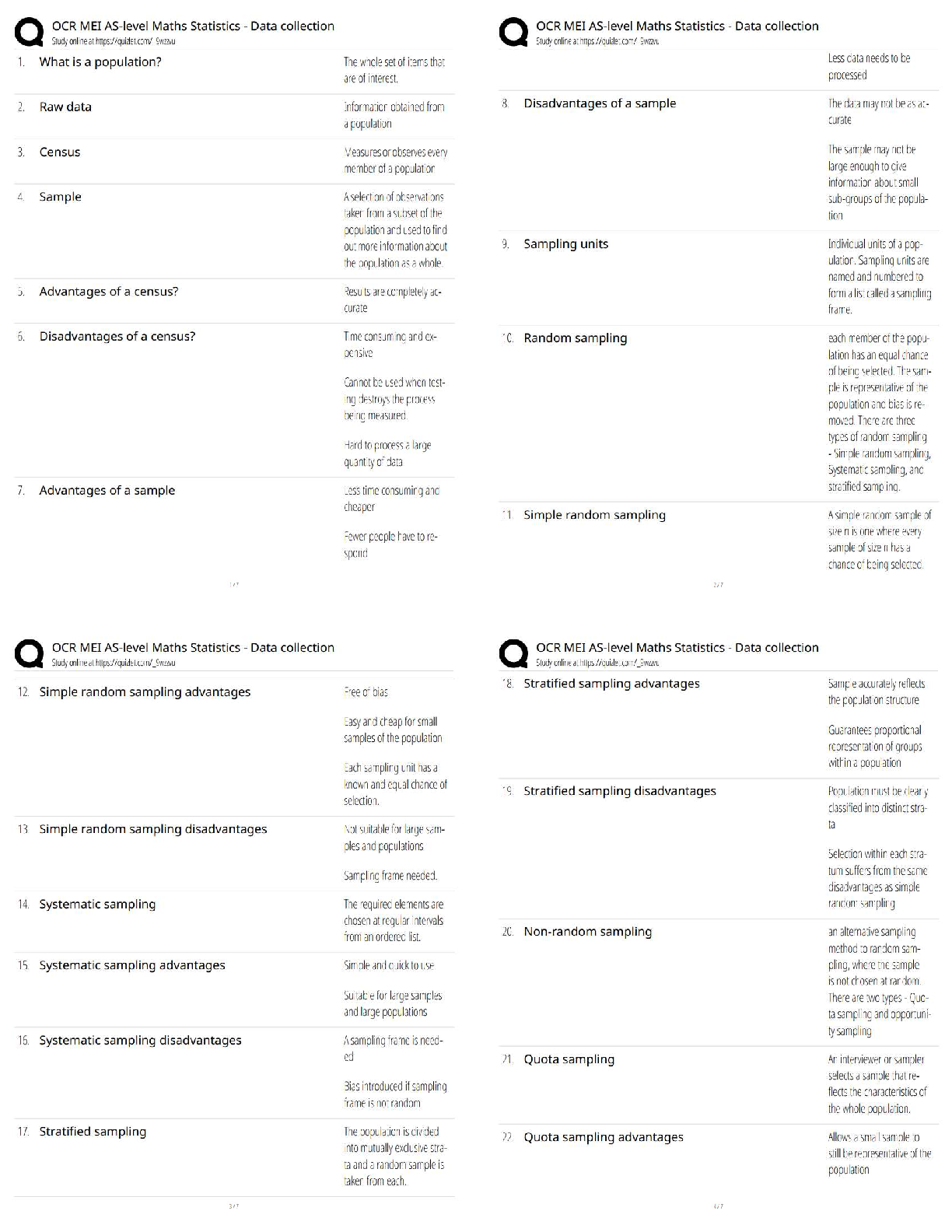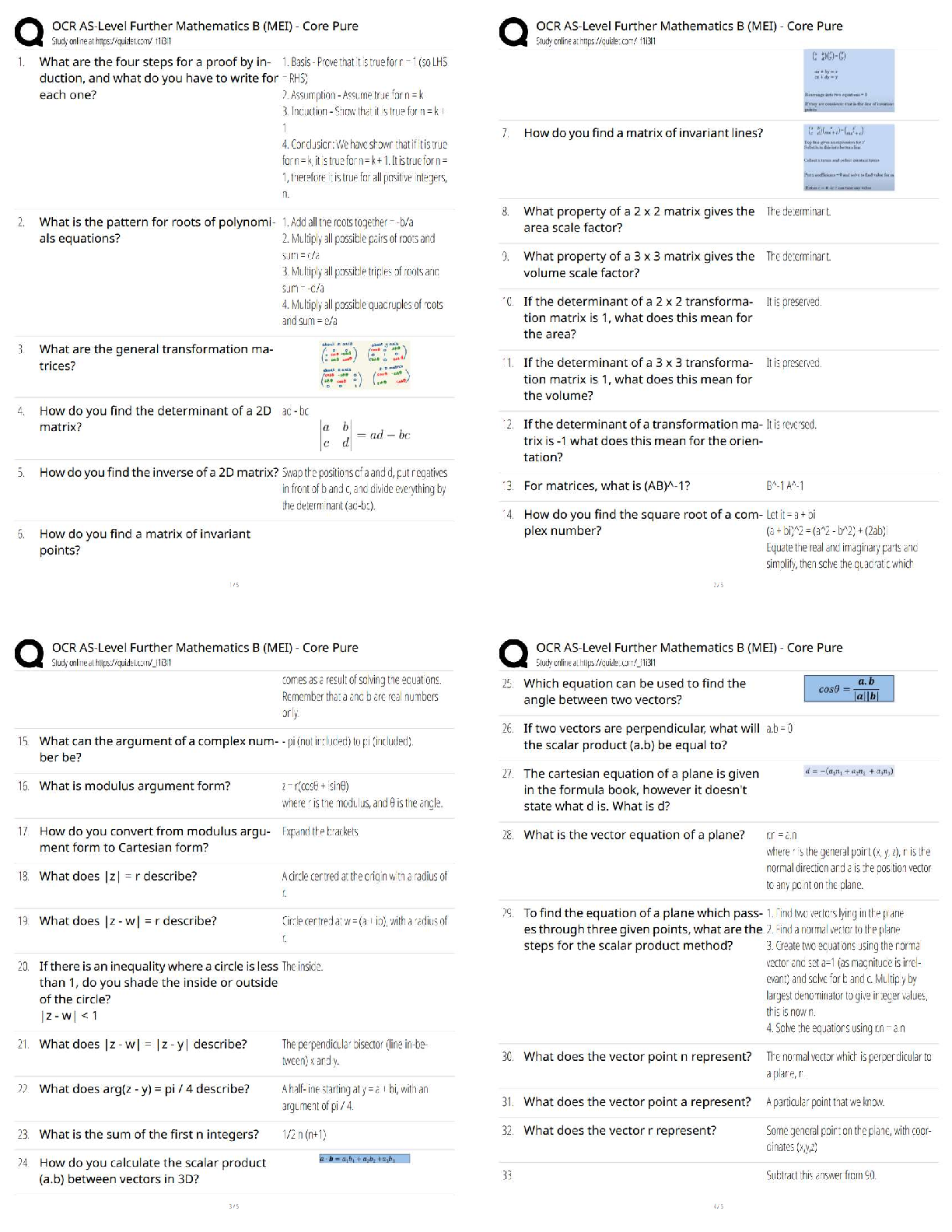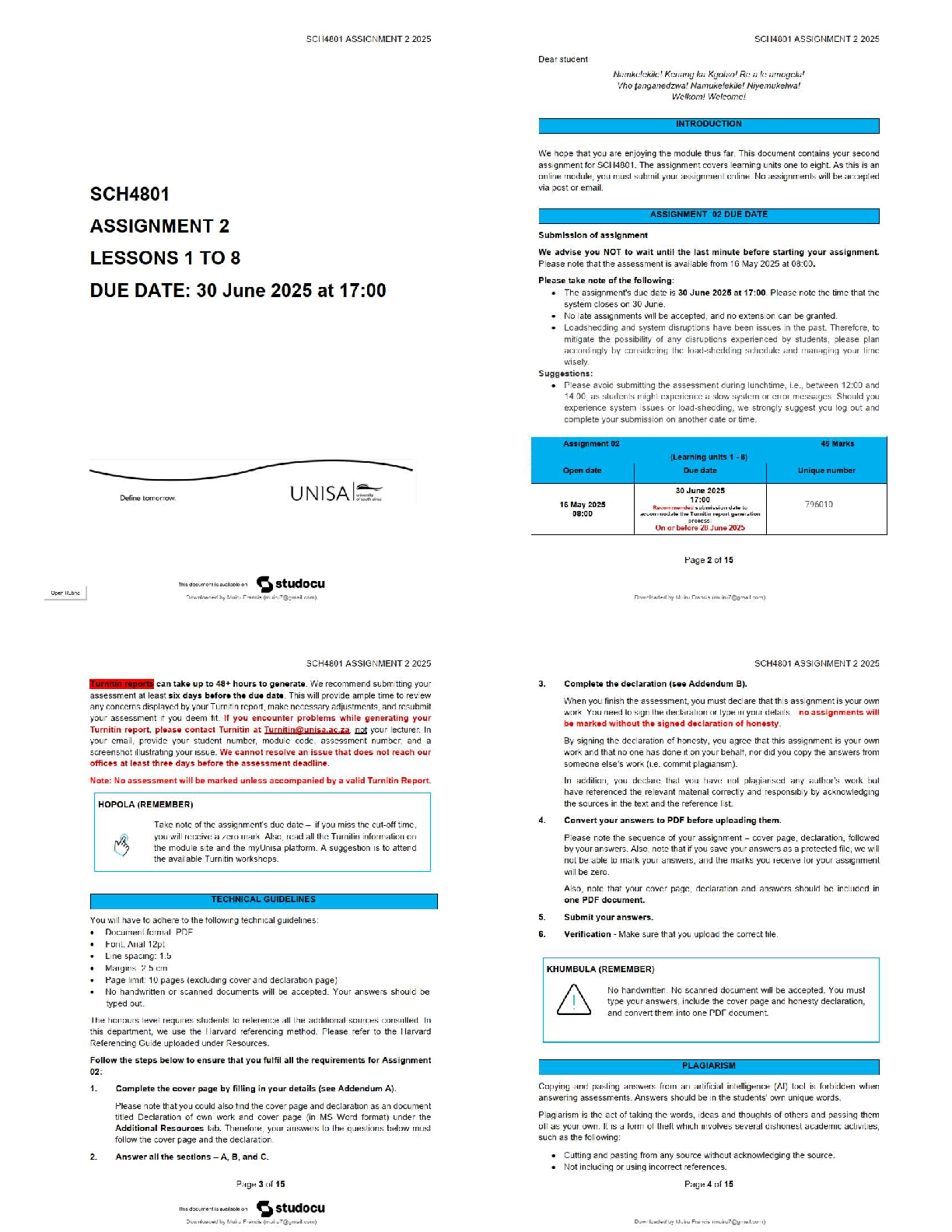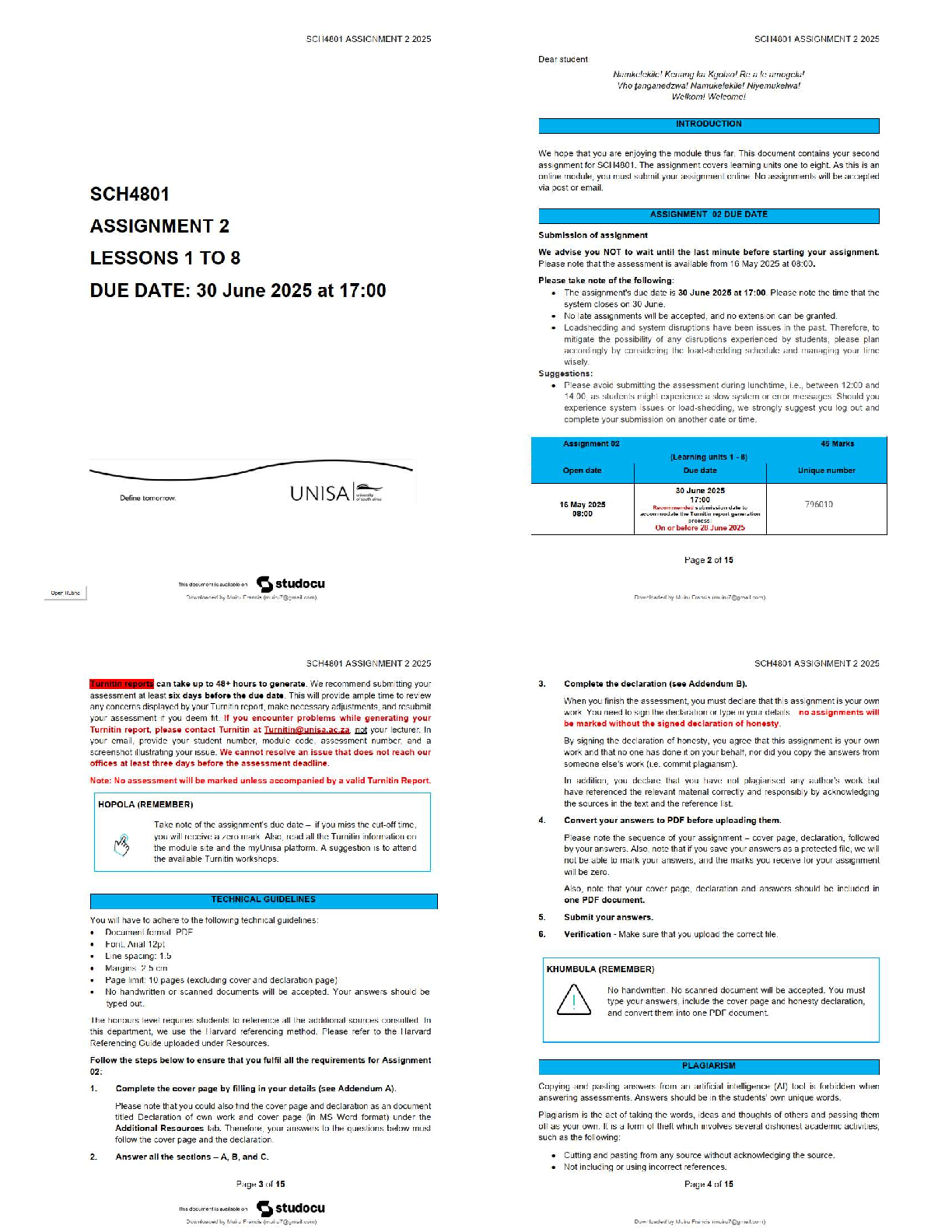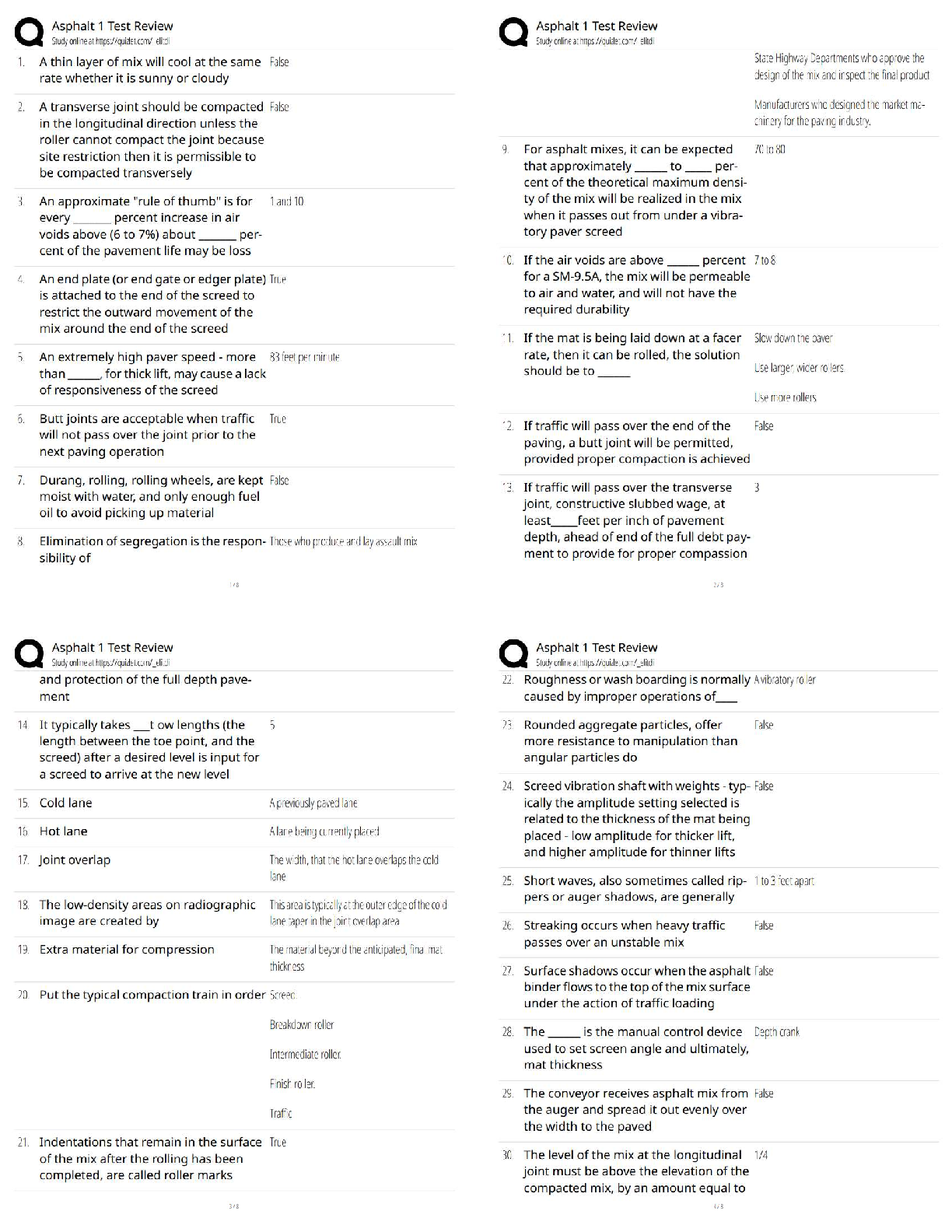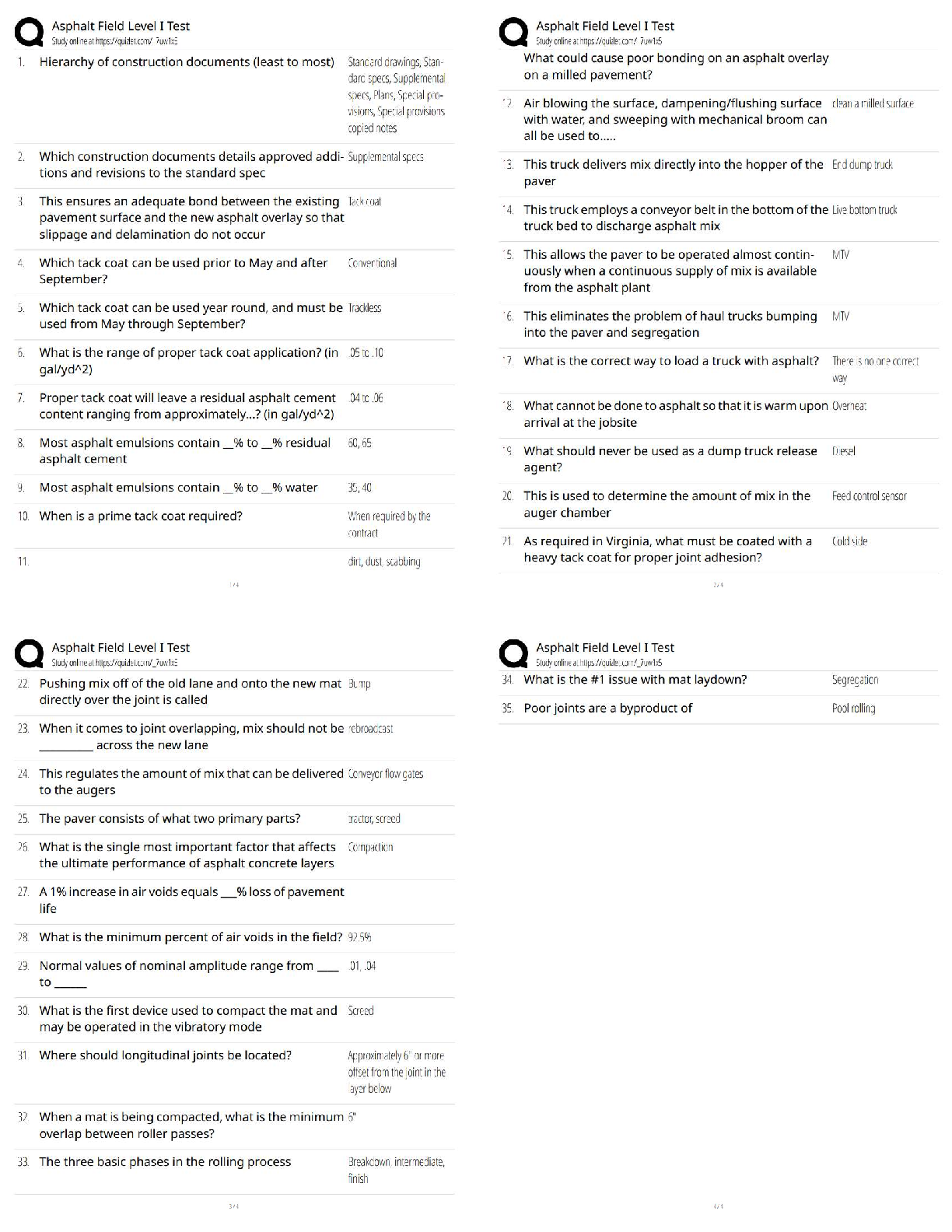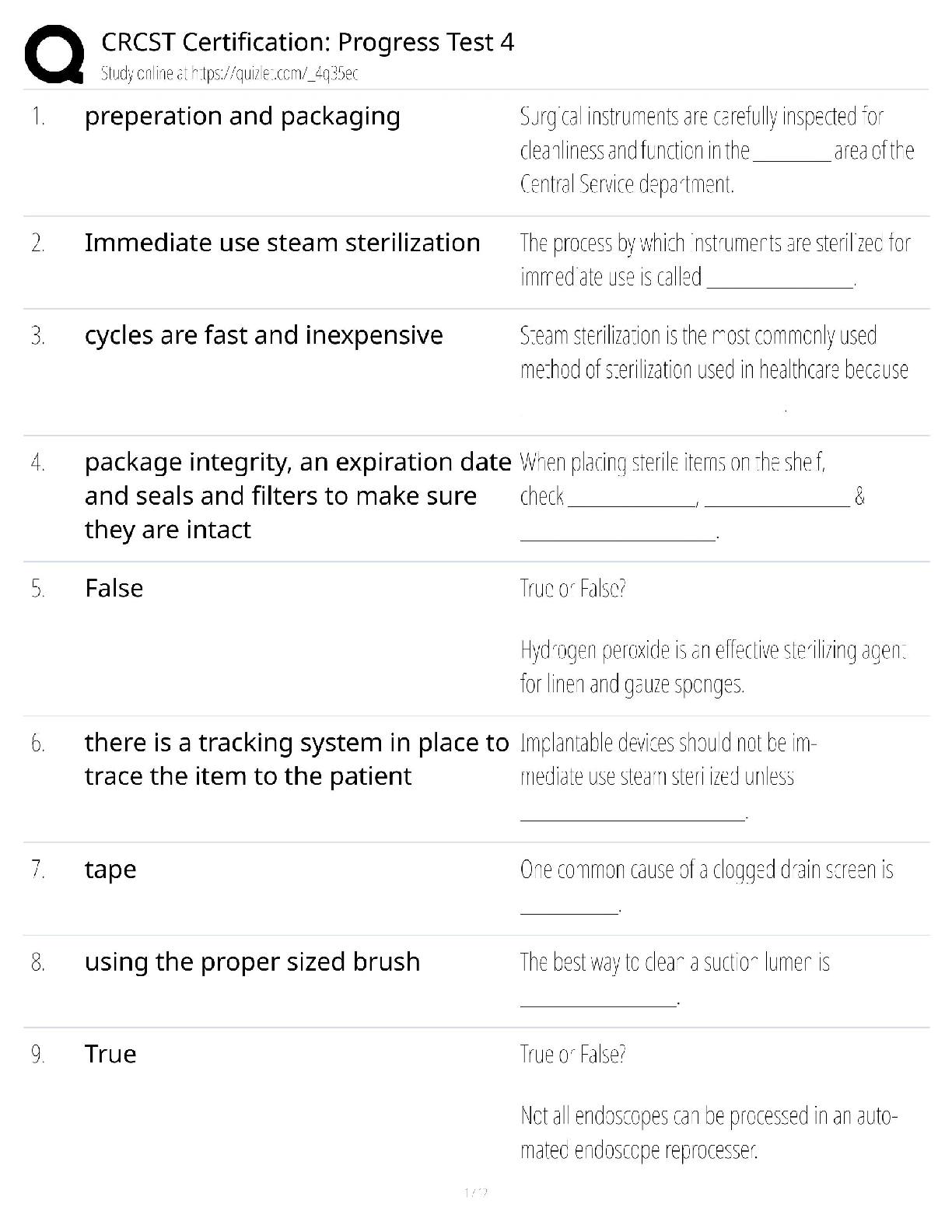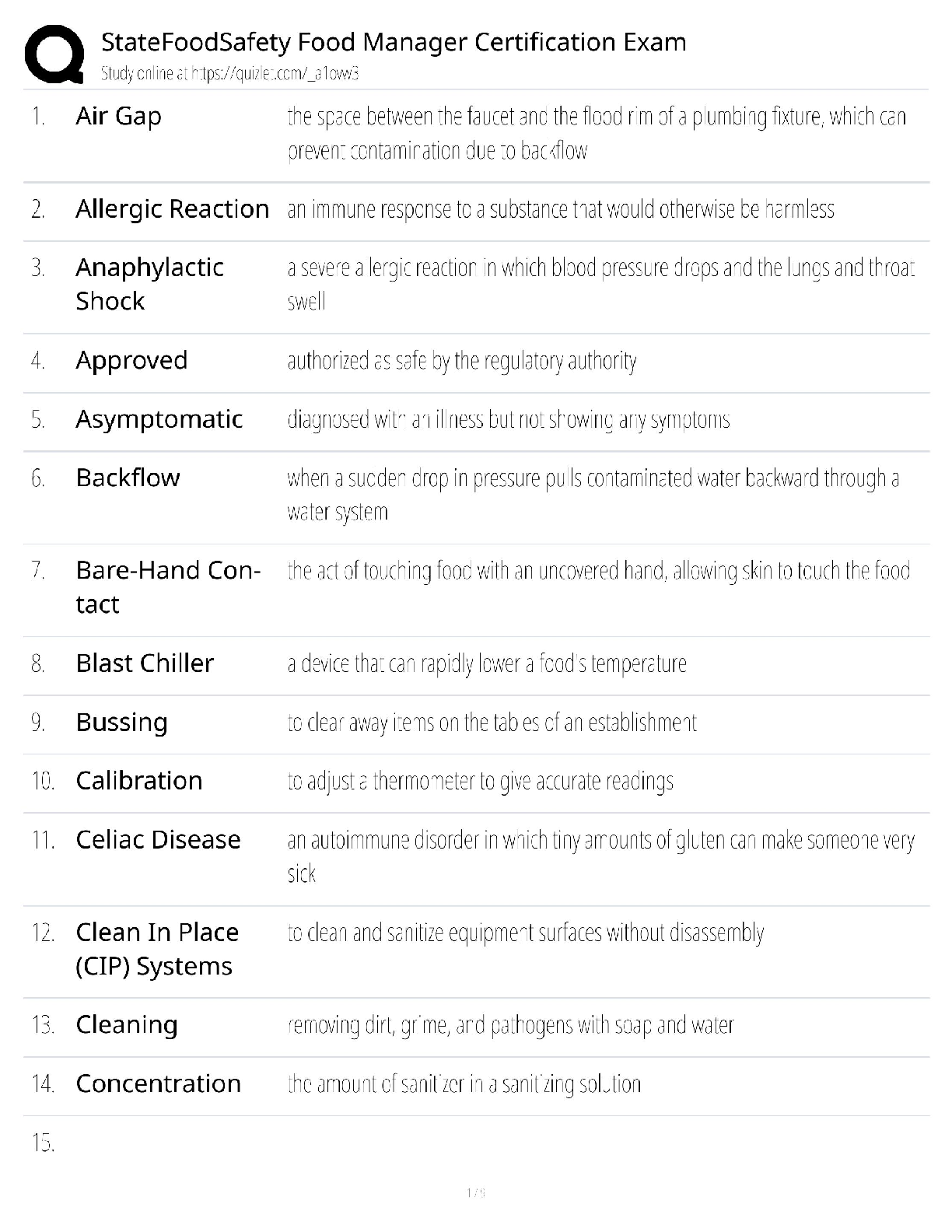Social Sciences > QUESTIONS & ANSWERS > TExES PPR Concepts and Terms Latest 2023 (All)
TExES PPR Concepts and Terms Latest 2023
Document Content and Description Below
TExES PPR Concepts and Terms Latest 2023 ability grouping ✔✔A type of grouping where students are placed together according to their skill level, in high, middle or low groups. The TExES exam d ... oes not like this practice as research indicates that it is not very effective and has some negative consequences. abstract ✔✔Characterized only in thought; non-concrete. Considered apart from concrete existence.Not applied or practical; theoretical. active engagement ✔✔Student are actively participating in an activity in a meaningful, hands-on way. This type of activity is more likely to help students to understand and remember the concept or lesson. acitve listening ✔✔Paying close attention to what is currently being said. Often the listener is silently making mental notes and focusing on not just the content, but also any emotional content, as well, and connecting what is being said to prior knowledge and experience. age appropriate ✔✔Instructional lessons, activities, etc, that fit the development, language and ability level of the child. This is not necessarily the same thing as developmentally appropriate, since a child's developmental level may not be the same as his/her age level. alternative assessment ✔✔A type of evaluation other than a conventional test. It is sometimes used with students who cannot take a conventional test for some reason or for whom a conventional test is not an accurate assessment of their knowledge or ability. analysis ✔✔Taking knowledge apart to understand how it fits together. It is one of the higher order thinking skills. application ✔✔Applying or using what is known to solve an actual problem. Admission, Review, and Dismissal (ARD) Committee ✔✔In Texas a team that determines a student's eligibility for special education services, reviews the eligibility on a regular basis, and determines an appropriate individual education plan for the student. assessment ✔✔S way of monitoring progress; the act of testing, determining an evaluation of a particular skill or content area; includes many different approaches and formats, formal, informal and authentic evaluation procedures. assimilation (Piaget) ✔✔According to Piaget this is the process of fitting new ideas or concepts into existing ideas or concepts. It suggests that a child may change or alter what he perceives in the outside world in order to fit his internal world. authentic assessment ✔✔Using evaluations procedures that measure exactly what learning has occurred. It literally means "real" and usually consists of a product that the student produces to demonstrate knowledge or mastery of a skill. autonomy ✔✔The process of becoming independent and regulating one's own behavior. Bloom's Taxonomy ✔✔Proposed by Benjamin Bloom this is a classification tool developed to categorize learning from low level thinking to very high level thinking. comprehension ✔✔Understanding and knowledge something, whether it is a concept, content information, behavior, etc. It is often used in relation to reading (reading comprehension) to indicate that a reader remembers and understands what was read. But, it is not limited exclusively to reading. constructivism ✔✔An instructional approach based on the theory on the idea that children build understanding by an active learning process. Students build their own learning and knowledge by exploration, discovery and questioning. content validity ✔✔How well a test measures what is was designed to measure. convergent thinking ✔✔Involves combining or joining different ideas together Based on elements these ideas have in common. In short, it means putting the different pieces of a topic back together in some organized, structured and understandable fashion. Convergent thinking, then, is an essential part of the outlining and organizing process. deductive reasoning ✔✔The process of thinking from general terms to specific terms; framing thinks so as to eliminate ideas or possibilities one by one English as a Second Language (ESL) ✔✔A program for teaching the English language to children whose first language is not English, although in practice it is much more comprehensive than this and includes the teaching of academic content to students with limited English proficiency. It involves effective instructional strategies for teaching English to non-native [Show More]
Last updated: 2 years ago
Preview 1 out of 38 pages
.png)
Buy this document to get the full access instantly
Instant Download Access after purchase
Buy NowInstant download
We Accept:

Also available in bundle (1)
Click Below to Access Bundle(s)
.png)
PPR BUNDLED EXAMS QUESTIONS AND ANSWERS [2022/2023] [VERIFIED ANSWERS]
PPR BUNDLED EXAMS QUESTIONS AND ANSWERS [2022/2023] [VERIFIED ANSWERS]
By Nutmegs 2 years ago
$22
16
Reviews( 0 )
$10.00
Can't find what you want? Try our AI powered Search
Document information
Connected school, study & course
About the document
Uploaded On
Feb 19, 2023
Number of pages
38
Written in
All
Additional information
This document has been written for:
Uploaded
Feb 19, 2023
Downloads
0
Views
201


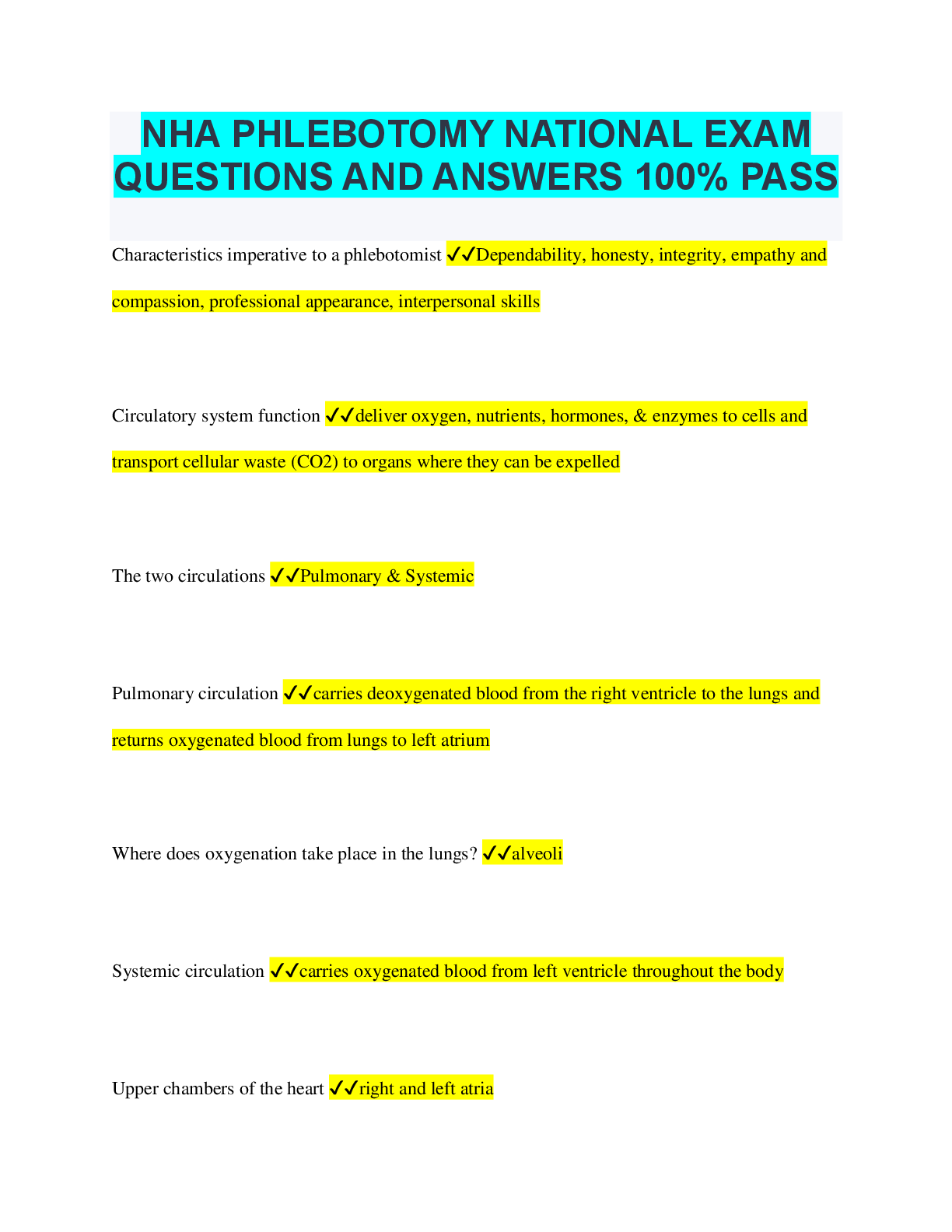




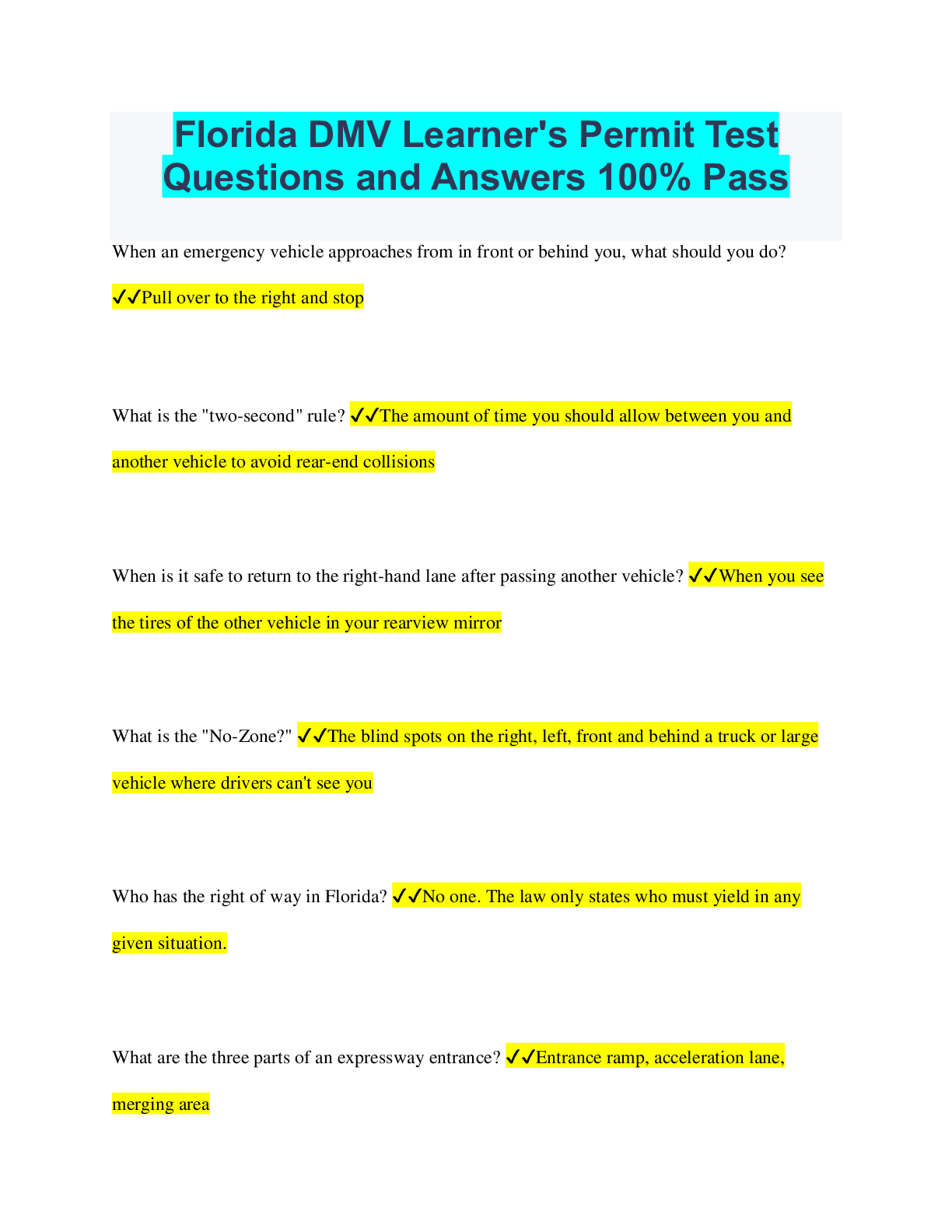
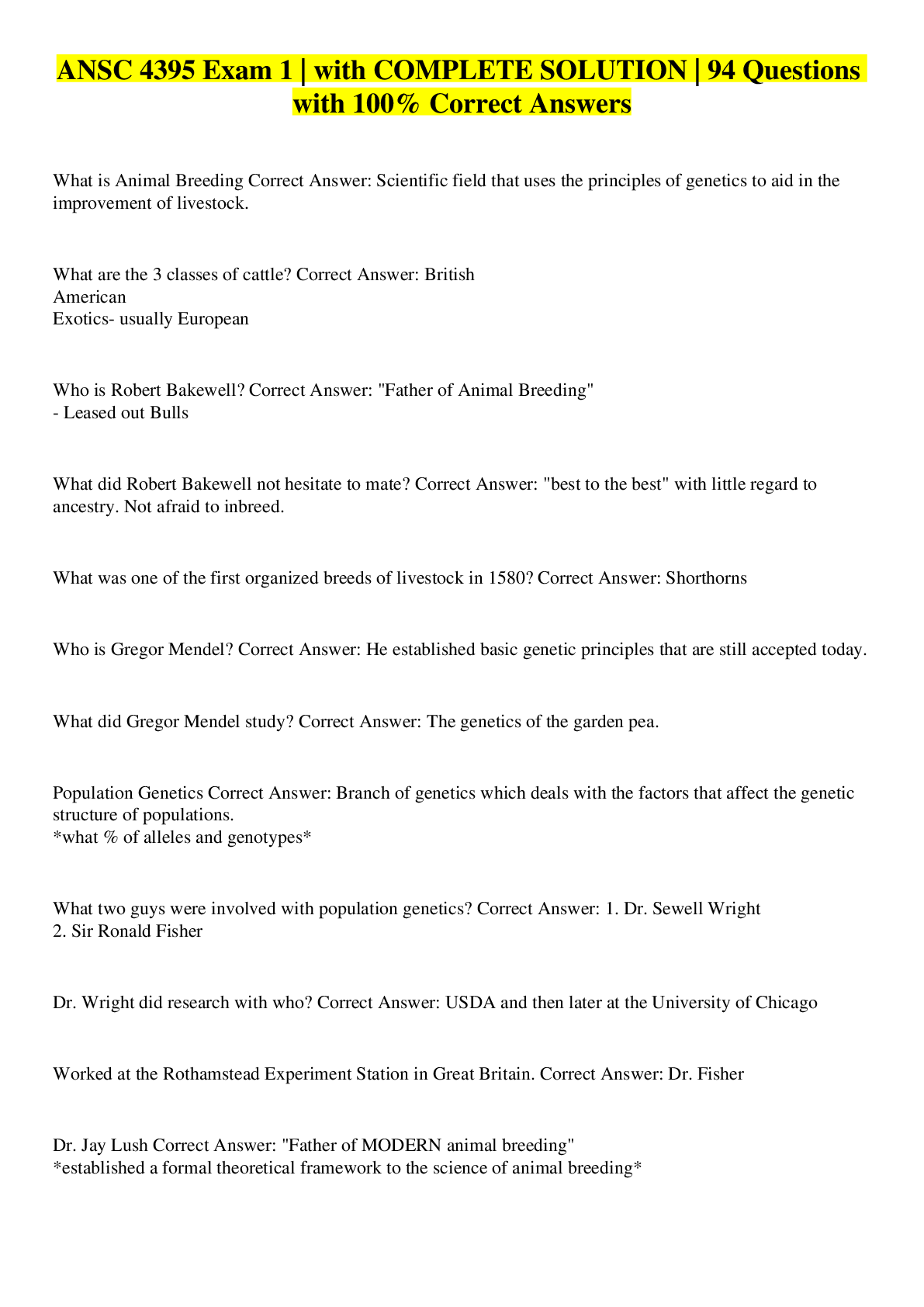

.png)

